#The Workman’s Club
Explore tagged Tumblr posts
Text

JK Flesh (Justin Karl Michael Broadrick) 17th February 2018, The Workman’s Club, Dublin, Ireland
source: fighting-boredom 📸: Martin Ward
#photography#artist photograpy#JK Flesh#Justin Broadrick#Justin Karl Michael Broadrick#The Workman’s Club#Dublin#Ireland#photo by Martin Ward
31 notes
·
View notes
Text
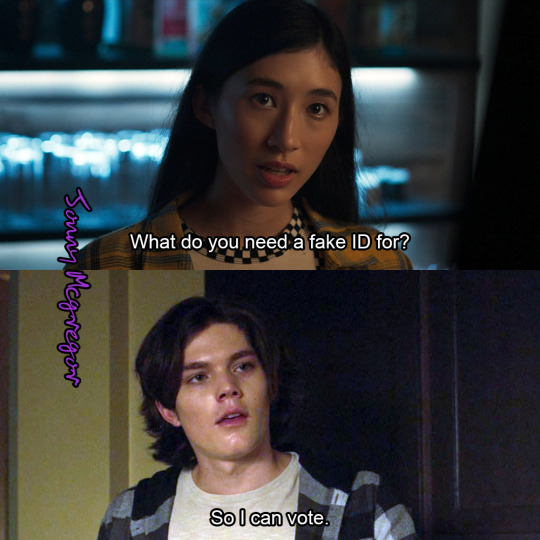
Hikari: What do you need a fake ID for? Eli: So I can vote.
#teen wolf#elikari#hikari zhang#amy lin workman#eli stilinski hale#eli hale#vince mattis#source: the breakfast club
19 notes
·
View notes
Text
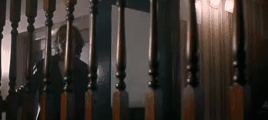
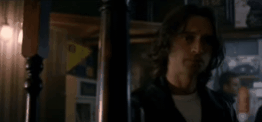
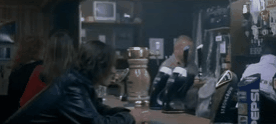

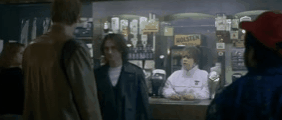
#once upon a time in the midlands#robert carlyle#kathy burke#rhys ifans#shirley henderson#in lieu of saloon we will take workman's club
17 notes
·
View notes
Text
Andrew Combs Interview: The In-between Space
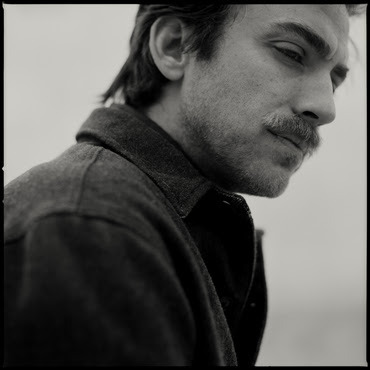
Photo by Austin Leih
BY JORDAN MAINZER
Andrew Combs has discovered the magic in the stillness. For this singer-songwriter with a family, including young kids, the evening, post-bedtime, represented the do-or-die moment for creativity: He could either kick back and relax or start some new tunes. What he found was that such hours of the night were actually the most fruitful. At ease, Combs was able to tell all kinds of stories, from autobiographical and biographical to fictional, with tones ranging from light, sweet, and romantic to heavy and devastating. The result is the aptly titled Dream Pictures (Chunk of Coal/Missing Piece), a collection of songs that started at home and built up into their own surreal worlds in the studio.
Upon reading the history behind Dream Pictures, I immediately thought of Combs' previous album, Sundays, because it was also named after and born out of a regular schedule. (Combs wrote a song during the week and recorded it on a Sunday.) But in speaking to Combs last month, it became clear to me that Dream Pictures' existence as a product of mental clarity was more casual than it was some newfound, purposeful desire to create. It's also not an album of kitchen table existential dread like Hiss Golden Messenger's Bad Debt; while they contain moments of self-doubt or even anger and violence, the songs on Dream Pictures are attitudinally variable, even within themselves. On "Eventide", Combs' dedication to his wife rife with subtle drums and piano, muted pedal steel, and whooshing synths, he nonetheless delivers lines like, "I passed away deep in my slumber / Far from fury and far grief." The folky, soulful, and textural "Your Eyes and Me" juxtaposes clever, pointed similes--"Your melancholy hair like curtains in between your eyes and me"--with verses that are weighty in their ambiguity. "Swan dive in the water / Down to the bottom of the lake / Visions of you and our daughters / But I drowned them all now, didn't I babe?" Combs asks, as you gasp, wondering who or what (the visions? the daughters themselves?) was exactly drowned. The very same song contains a plea to "remember the good before the bad," a useful mantra no matter the context.
On Dream Pictures, Combs worked again with Dom Billett, the drummer on Sundays. Billett co-produced Dream Pictures and helped Combs flush out the instrumental arrangements, playing drums, bass, piano, and synthesizers and providing background vocals. Overall, Billett's keen ear for atmosphere, combined with Combs' acoustic and electric guitar playing and Spencer Cullum's pedal steel, gave life to the idea of "dream pictures." Opening track "Fly In My Wine", written by the three of them, is an instrumental consisting of upright piano, pedal steel, and field recorded audio from Richard Serra's installation at the Bilbao Guggenheim. "To Love" is another sonic experiment, one not too far removed from Combs' initial demo, Combs delivering high-pitched, starry-eyed mantras over analog synths, electric guitars, and noise. "The Sea in Me" binds scraped acoustic guitars with an 8-bit synth line. These off-kilter sound collages effectively represent the fragility of memories and dreams. Even on comparatively traditional pop songs like the ballad "Point Across", the echo and delay on Billett's snares feel like time being bent. And when the instrumentation itself is cleaner, it effectively contrasts Combs' unhinged narrator: On Burton Collins co-write "I'm Fine", an electric guitar and Rhodes jam, Combs plays the part of the lovelorn person denying his own heartbreak. "Do I ever touch your heart at all?" he asks, "Or are you busy laughing while I'm punching the walls?"
When I spoke to Combs, he was again in the stillness, but he wasn't working. He was on a beach in the Florida panhandle, on a vacation with his family and parents, getting some much needed rest before moving again. Starting tomorrow, Combs will embark on a two-and-a-half-week tour of the UK, Ireland, and the Netherlands, armed with an acoustic guitar, drum machine, and keyboards. Though Combs is known as a Nashville singer-songwriter, his first love was electronic music, and these days, he writes most of his songs on piano as opposed to guitar. And if the sparkling smog of Dream Pictures is any preview, he might just be able to shed that Americana label once and for all. Below, read our conversation, edited for length and clarity.
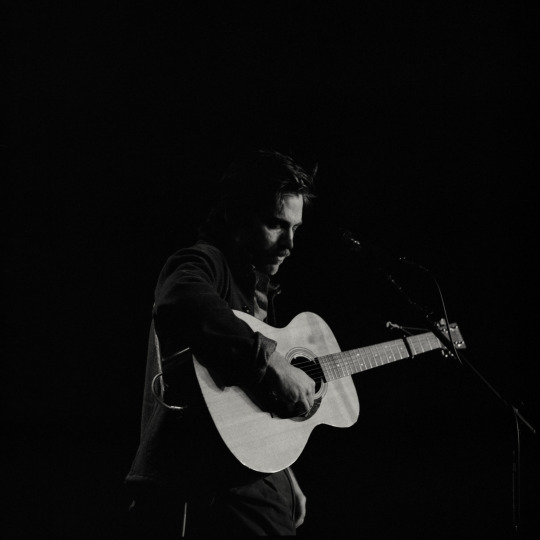
Photo by Austin Leih
Since I Left You: Sundays was titled and formed around a dedicated day of the week that you sat down and recorded the song you had written over the past seven days. Dream Pictures is sort of similar in that it was inspired by your periods of creativity after your kids went to sleep. Is there something that's special in general about setting aside consistent time for music?
Andrew Combs: Honestly, it started out of pure necessity. It's [when] I can have time alone. I don't know how conscious I [am] of it, but at this age, I'm trying to stay more present and really take in every day and what I'm grateful and thankful for. That doesn't necessarily mean that the songs are all about that, but [I'm] trying to be cognizant of the world that I'm living in now. That time of day is when [songwriting] is easiest to do, [when] I'm still with it enough that I can formulate creative output that may or may not mean something.
SILY: Let me ask you a couple questions about what the songs on Dream Pictures are about. First, I'm assuming there are some songs on here that are not autobiographical.
AC: Yeah. I do feel like pieces of me are in every song, but "The Sea in Me" is about two friends going through a breakup with each other. That's not about me at all, really, but there are things I identify with in that song from my history.
SILY: Even if songs aren't about you, however, they have that same sort of biographical presence, that "moment in time" feel.
AC: Listening back now, I definitely think that's correct. They are little snapshots in time.
SILY: Quite literally, the opening track, "Fly In My Wine", has field recordings, which I find, when mixed with abstract instrumentation, to be very dream-like, which would go along with the theme of the record. When did you realize you wanted to open the album with something like that?
AC: When I figured out the album title was going to be Dream Pictures. I'm right there with you in that field recordings mixed with abstract music feels dream-like. I also really love the song "Eventide". I wanted it to be the first song, but I didn't feel like just starting [the record] with the song itself. I wanted to have some sort of bed to dip your toes into.
SILY: "Eventide" is, on the whole, a dedication to your wife, but one can read yourself working through some troubles. A line like, "I passed away deep in my slumber / Far from fury and far grief"--I don't know what you're referring to, but both within the album and within certain songs themselves, there are moments of struggle or darkness.
AC: Totally. I'm always looking for the darkness in the light and the light in the darkness. Maybe I should try to accept the light when it's light and the dark when it's dark.
SILY: But the former is more true. It speaks to the complexity of things, that things aren't one or the other.
AC: Sure. It would be nice, though, to live in the light.
SILY: If we could figure it out, everybody would be doing it.
AC: That's right.
SILY: What's the story behind "Heavy the Heart"?
AC: Without getting too namey, it's sort of about Elvis, but it's really about a couple people I've known within the music industry who burned it at both ends. They've all been tragic people deep inside, destined for a large and horrific crash.
SILY: Spencer Cullum's pedal steel stands out to me throughout the record. Normally, pedal steel stands out in general by virtue of its sheer quality, but on a lot of this album's songs, it's really subtle. Was that a product of Spencer's choice, the mixing, or something else?
AC: It's a combined brainchild of Spencer, myself, and Dom. Pedal steel is a beautiful instrument, but being in Nashville and starting our careers in the Americana sphere and hearing pedal steel all the time, it can be overplayed and overused. We three have all gravitated towards simplicity and stripping back instead of layering and putting a lot of stuff on top. That being said, on a song like "Mary Gold" or "Genuine and Pure", we really wanted it to stand out for a solo section. I know Spencer's taste is similar, and Dom's is probably the same, but I really like Steely Dan pedal steel instead of alt country [pedal steel,] a more tasteful, thought-out thing. Some of [the pedal steel subtlety] is in the mixing, but I'd say 90% of it is where we chose to put it.
SILY: The instrument has become really prevalent in indie rock to the point where so much prominent indie rock is basically alt country. You'd be considered more of an Americana artist, accurate or not, but Dream Pictures is closer to me to Steely Dan than it is alt country.
AC: Yeah. I know how I got into [Americana,] but I don't necessarily know how I'm gonna escape those tags. [laughs] I'll let time deal with that.
SILY: You've definitely never released a song like "To Love", which is electronic. Can you tell me how that song came to be from start to finish?
AC: I made demos for a lot of [the Dream Pictures] songs on my computer at home. I have a really simple setup with the MIDI controls, microphone, and guitars. That was the only song for which we actually used a lot of the demo. I didn't think or know if it was gonna fit. I still don't really know, but I like it a lot. I definitely feel like there's a handful of songs that I really like that I have stowed away in that vain.
When I first got into music, I was into electronic music. Besides hearing The Beatles and knowing it was something special, when I first started making my own compositions or songs, it was all electronic stuff. It's something I've always loved to do. I haven't always felt confident enough to put it on a record. I definitely feel like I'm doing it more and more. [On the] "To Love" demo, I had done the drums and some of the keyboards and the guitar solo and the vocals. [Dom] added percussion, more keys, and real bass. I don't have a real bass, so I just played bass on the keyboard. It's definitely different than the rest of the record.
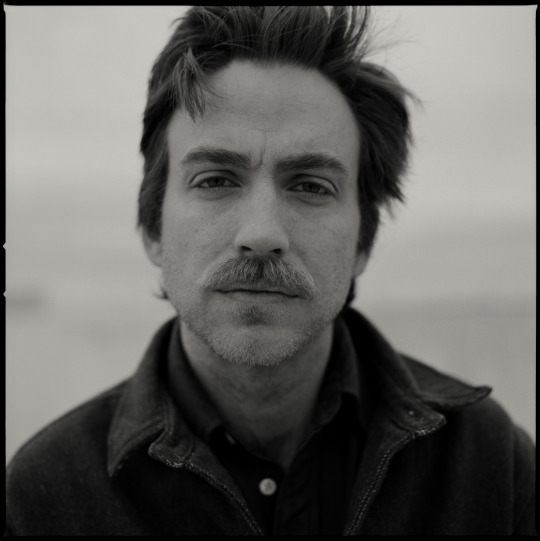
Photo by Austin Leih
SILY: I wanted to ask you about "Table For Blue", which seems like a very sweet, simple, almost low-stakes song, in the best way. Is that how it fits within Dream Pictures, providing levity?
AC: Yes. It's the kind of song I've always been trying to write since I started writing songs. It is a low-stakes songwriting song. I'll always try and write songs like that, but they're fewer and farther between these days.
SILY: You co-wrote "I'm Fine" with Burton Collins. Can you tell me about your working relationship with him?
AC: Burton and I have written a lot since 2011 or 2012. For six years, I had a publishing deal where I was co-writing all the time for people on Music Row. Burton is one of the very few people I've maintained a working relationship with. He's mostly an actor. He doesn't play or sing. But he's a brilliant lyricist. He writes with Doja Cat and also collaborates with country people. He did a kids play. He likes to keep his fingers in as many things as possible. We've written a lot over the past ten years and try to do so once or twice a year.
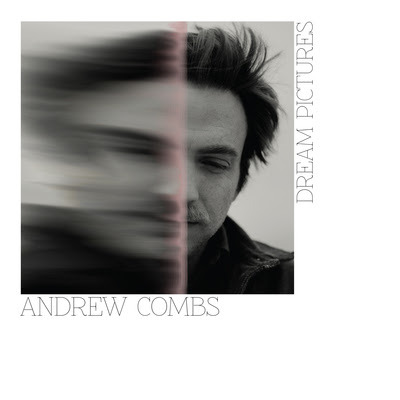
Dream Pictures cover art
SILY: How did you come up with the front cover for the album? Lately, you have a lot of experimental photographs of yourself adorning your records.
AC: It's a photo my buddy Austin Leih took. He's done videos for me in the past and did the "Eventide" visual accompaniment. I was just messing with the picture and the idea of "dream pictures" and the in-between space, [such as] between dreaming and sleeping. I might have hit the nail too much on the head.
SILY: It doesn't have to be subtly symbolic. It can just look cool.
AC: Good. [laughs]
SILY: You co-designed the record cover, too. I know you paint, but do you do design work?
AC: My dad is a retired graphic designer, so I grew up knowing that world. I've always dabbled in it, but I've never had the money to buy the Adobe suites and have never had the time or want to learn how to do it technically well. It's something I do find pleasing to toy around with. I didn't have much money behind this record and Sundays, so [I tried] to do as much as I could by myself.
SILY: Will your upcoming tour be the first time you've played these songs live?
AC: I've played a few of them at a show here and there, trying them out, but yeah, in terms of a formal setting. I'm playing solo, so it's not going to be a full record experience, but I'm trying to incorporate drum machine and keyboards. I'm so bored by the [just] acoustic guitar thing.
SILY: I'm sure it'll prove an artistically satisfying challenge to adapt the songs in that way, too.
AC: Totally. It's actually been really fun.
SILY: On what instrument did you write most of the Dream Pictures songs?
AC: A lot of them were on keys. I'm not a great keyboard player. I just kind of plunk along with chords. Dom did the more elaborate arrangements. I have an old RMI Electra-piano and mess around on that a lot. There are certain things that only guitar can do, but I've grown bored with it being the thing I reach for every time. I think it's nice to start with keys or even a drum beat to change things up.
SILY: Are you planning on touring in the US?
AC: I don't know. I'd like to do some stuff. I can't really foresee doing a real long tour, hitting smaller markets, because I can't afford it. I would at least like to do New York, Philly, the East Coast big city stuff. Do a Nashville show, maybe go out West. It might also depend on if a big artist likes the record and wants to take me out to do some opening sets. I'm always keen on that in the States. It's a lot easier that way.
SILY: That makes sense. You don't have to do a ton of the planning yourself.
AC: And if they have an established audience you haven't tapped into. I did some shows with The Milk Carton Kids, and it was the best opening slot ever, because their crowd is quiet and respectful and they listen. What I do is subtle and can be quiet, so it worked. Then you have those people on your side.
SILY: Are you writing right now?
AC: The time period after you make something and before it comes out is actually really productive for me. It's a time to dream and mess around without a deadline or expectations. I don't know what exactly it is, but I have ideas floating around for what's next. Who knows whether it will stay that way or morph into something different. A lot of my time right now is being spent getting ready for the tour.
SILY: When you're making music, do you try to not consume other media? Or are you pretty good at compartmentalizing and not letting other records, TV shows, movies, or books affect you?
AC: I like learning and listening and seeing new stuff all the time, so I keep it going at all times.
SILY: Anything recent you've liked?
AC: I read [Daniel Mason's] North Woods, which was really beautiful. I'm re-reading East of Eden, which is one of my favorites. The King Hannah record is really cool. I'm listening to these Romanian folk songs, which are mostly a capella with maybe some sparse instrumentation, but they're really cool. I wouldn't know how to tell you what they're called, though, because they're in a different alphabet. I don't watch a ton of TV. I really liked The Zone of Interest.
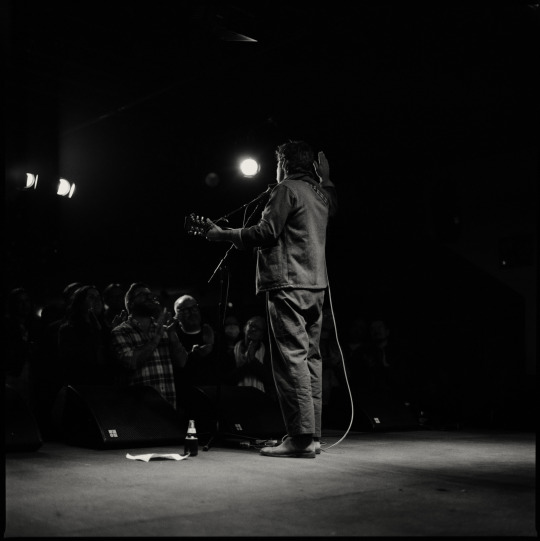
Photo by Austin Leih
Tour dates
8/22: The Keep, Guildford, UK 8/23: The Railway Inn, Winchester, UK 8/24: Stanford Hall, Bottesford, UK 8/25: Caroline Street Social Club, Shipley, UK 8/26: Kazimier Stockroom, Liverpool, UK 8/27: St Mary's Creative Space, Chester, UK 8/28: The Workmans Cellar, Dublin, Ireland 8/29: Cleere's Bar & Theatre, Kilkenny, Ireland 8/30: The American Bar, Belfast, UK 8/31: Run of the Mill 2024, Paisley, UK 9/1: Sneaky Pete's, Edinburgh, UK 9/3: Water Rats, London, UK 9/5: De Doelen, Rotterdam, Netherlands 9/6: Luxor Live, Arnhem, Netherlands 9/7: Burgerweeshuis, Deventer, Netherlands 9/8: Sugar Mountain x Indiestad Met Festival, Amsterdam, Netherlands 9/9: Muziekgebouw Eindhoven, Eindhoven, Netherlands
#interviews#andrew combs#live picks#the keep#the railway inn#caroline street social club#kazimier stockroom#the workmans cellar#cleere's bar & theatre#the american bar#sneaky pete's#water rats#de doelen#luxor live#burgerweeshuis#sugar mountain x indiestad met festival#muziekgebouw eindhoven#dream pictures#austin leih#chunk of coal#missing piece#sundays#dom billett#spencer cullum#richard serra#bilbao guggenheim#burton collins#elvis presley#steely dan#the beatles
0 notes
Text




Workman’s Club, Dublin. 10.02.24. Every pic I took at the gig itself turned out so blurry
#dublin#workman’s club#digital camera#photography#my photos#me#sign crushes motorist#take care#slow core#Spotify#diary
4 notes
·
View notes
Text

x
0 notes
Text
Music | BORDERLINE 2024 - All you need to know
The day-by-day stage times for Borderline, hosted in The Workman’s Club this Thursday and Friday (15, 16 February), have been released. Across the two nights at The Workman’s Club, these 16 emerging artists are undoubtedly the ones to watch out for with Antony Szmierek, Cardinals, EFÉ, Enola Gay, Fat Dog, Kai Bosch, Lambrini Girls, Maruja, Miso Extra, Mount Palomar, Nxdia, Sam Akpro (pictured…
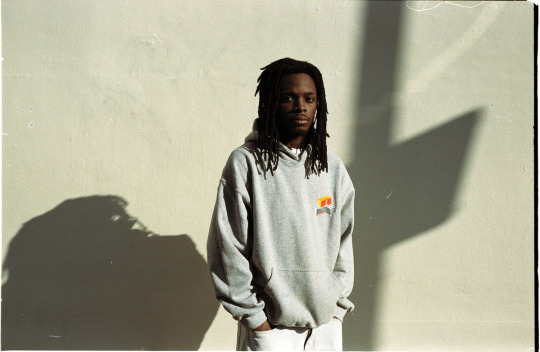
View On WordPress
#Borderline#Dublin#festival#line-up#music#Music Blog#New Music#robmoro#stage times#The Workman&039;s Club
0 notes
Text
youtube
Check out this new track “Workman’s Club Raucous” by Disco Nap!
1 note
·
View note
Text








The Last Dinner Party at The Workman’s Club, Dublin
December 20, 2023
#gorgeous gorgeous gorgeous#the last dinner party#tldp#abigail morris#lizzie mayland#georgia davies#emily roberts#aurora nishevci#black and white#live performance#island records#fashion#aesthetic
24 notes
·
View notes
Text
jamsiblue At The Workman's Club, Dublin 5.6.2023
123 notes
·
View notes
Text
Mad Maddy Maddison

“Eccentric Jester” © London Workman, accessed at their ArtStation here
[This is one of many iterations of my “goth clown” persona, tailored to a low level game and with more emphasis on the clown. I created her for a freeform game run by @abominationimperatrix, which we haven’t gone back to yet. I do hope to. The Harley Quinn influence is very much intentional.]
Mad Maddy Maddison CR 3 CG Humanoid (dark folk) Clad in mismatched and brightly colored jester’s motley, this tiny woman is thin, muscular and pretty. At first glance she might appear to be wearing stage makeup, but her gray skin and black lips are their natural color.
Mad Maddy Maddison has had a very complicated and strange life already in her nineteen years, and is excited to see what happens next. She was born to a clan of dark folk living in the Darklands beneath the Brazen Peaks, and the caligni callers selected for her to be a dancer, one of the dark folk who act as intermediaries between settlements. Unfortunately, that meant that her wanderlust started at a very early age, and she managed to get separated from her family. She was found and given a home, but unfortunately it was by Mater Cachinnarum, the Mother of Sneers. This wicked bogeywoman pops up in nightmares throughout eastern Garund, and tried to raise Maddy to do the same. Even though Maddy was raised by Cachinnarum for a solid decade, she held true to her overall sense of kindness and good humor, and escaped by the grace of Cayden Cailean, who has a soft spot for all orphans and runaways.
Maddy made it to the bustling city of Katapesh where she currently works at the Night Circus, an entertainment troupe in the Night Markets. At the Circus, she is a talented juggler, percussionist, clown and occasional pickpocket. Her favored instruments are the zills. Maddy has a fascination with death and the undead, having been surrounded by ghouls and skeletons in Mater Cachinnarum’s care, and she is learning how to affect them with her magical music. She’s also working on making friends, something she’s never had a lot of. Her closest friend is a flumph named Taktii, who has given dire warnings about monsters in space. Maddy currently finds this concept more intriguing than scary.
Maddy stands a whole two and a half feet tall and carries a club as long as she is tall. She has a caffeine addiction, and rarely goes a day without several cups of coffee.
Mad Maddy Maddison CR 3 XP 800 Dark dancer bard 2 (dirge bard) CG Small humanoid (dark folk) Init +4; Senses Perception +8, see in darkness Defense AC 17, touch 15, flat-footed 13 (+1 size, +4 Dex, +2 armor) hp 33 (4d8+12) Fort +3, Ref +10, Will +3; +4 vs. death effects, energy drain, fear, necromancy Defensive Abilities haunted eyes Offense Speed 30 ft. Melee masterwork greatclub +5 (1d8+1) Ranged dagger +7 (1d3+1/19-20) or improvised weapon +7 (1d4+1) or splash weapon +8 (varies) Special Attacks bardic performance (13 rounds, countersong, distraction, fascinate, inspire courage +1), dark curse, death throes, sneak attack +1d6 Spells CL 2nd, concentration +5 1st (3/day)—cure light wounds, fumbletongue (DC 14), hideous laughter (DC 14), ray of enfeeblement (DC 14) 0th—detect magic, mage hand, message, open/close, prestidigitation Statistics Str 13, Dex 18, Con 16, Int 14, Wis 8, Cha 16 Base Atk +2; CMB +2; CMD 16 Feats Point Blank Shot, Throw Anything Skills Acrobatics +9, Bluff +8, Climb +10, Diplomacy +8, Escape Artist +9, Knowledge (arcana, religion) +7 (+8 vs. undead), Perform (comedy, percussion) +8, Perception +8, Sleight of Hand +9, Stealth +17; Racial Modifiers +4 Climb, +4 Perception, +4 Stealth Languages Common, Dark Folk, Kelesh SQ poison use, secrets of the grave Gear masterwork greatclub, 5 daggers, leather armor, 4 bells, masterwork zills, wand of disguise self (25 charges), alchemist fire (x4), holy water (x4), 3 doses black smear poison, 1 dose oil of taggit, coffee pot, mortar and pestle, 5 lbs coffee, jewelry worth 30 gp, 13 gp Special Abilities Dark Curse (Su) As a standard action, a dark dancer can make a touch attack against a foe and curse it. The foe must succeed at a DC 12 Will saving throw to resist the effects. Creatures that fail the saving throw take a –2 penalty on all Dexterity and Charisma-based skill checks. This curse is permanent, but the victim of this curse can attempt a new saving throw each day. Death Throes (Su) When a dark dancer is slain, its body combusts in a flash of bright white light, leaving its gear in a heap on the ground. All creatures within a 10-foot burst must succeed at a DC 13 Fortitude save or be dazzled for 1d6 rounds. Other dark folk within 20 feet must succeed at a DC 13 Will save or be shaken for 1 round. The save DC is Constitution-based. Haunted Eyes (Ex) Maddy gains a +4 bonus on saves against fear, energy drain, death effects, and necromantic effects. Secrets of the Grave (Ex) Maddy gains a bonus equal to half her bard level on Knowledge (religion) checks made to identify undead creatures and their abilities. A dirge bard may use mind-affecting spells to affect undead as if they were living creatures, even if they are mindless (though spells that affect only humanoids do not affect them, even if they were humanoids in life). In addition, she may add one necromancy spell from the spell list of any arcane spellcasting class to her list of spells known at 2nd level and every four levels thereafter.
#mad maddy maddison#monster girl summer#monster npc#npc#goth clown#jester#dark folk#dark dancer#caligni#pathfinder 1e#pathfinder rpg
67 notes
·
View notes
Text
Interview: Mike Faist Pulls Back the Curtain
By AnOther Magazine
A decade on Broadway, a critically acclaimed turn in Steven Spielberg’s West Side Story, a role in Challengers alongside Zendaya – but who is Mike Faist? The Ohioan actor has remained an enigma, until now
One evening in 2016, the curtains fell on a normal weeknight performance of Dear Evan Hansen at the Music Box Theatre at 239 West 45th Street in Midtown Manhattan. Mike Faist quit the stage with the rest of the cast and was met with a guest, who had come backstage to see him. “I love a ghost story,” said the guest. It was Steven Spielberg.
Spielberg told Mike that he was working on a new film adaptation of West Side Story and that he wanted him to audition for it, breaking from a long tradition of Hollywood directors taking inspiration from Broadway but casting Hollywood actors in the roles. Mike had never thought he’d be in movies but loved the idea of being able to say he’d once auditioned for Spielberg. So, he put a tape together for the role of Tony, but Spielberg ended up giving him the role of Riff, the leader of the Jets – which he was thrilled about, having loved Russ Tamblyn in the original. Plus, “Everyone wants to be Mercutio,” he says.
Mike was lauded for his performance, which earned him a Bafta nomination, though Quentin Tarantino said he should have got an Oscar – something Mike hadn’t heard about before I told him when we met; he expressed a certain bemusement at the news. His portrayal of Riff represented a departure from previous interpretations of the character; instead of a corn-fed all-American type, Mike’s Riff is wild and waifish – he lost weight for the role and pored over Bruce Davidson’s seminal 1998 photography book Brooklyn Gang. “That’s where I found Riff,” he says. “They always cast jocks, muscular guys, obviously alpha guys. But that’s not who these guys were, they’re drunk, broke, heroin addicts, starving … ”
Now, the 32-year-old Ohio native is poised to star in two films: Challengers, the new romantic (read: love triangle) drama from Call Me By Your Name director Luca Guadagnino, starring Zendaya and Josh O’Connor; and The Bikeriders, Jeff Nichols�� new feature inspired by Danny Lyon’s 1967 photography book of the same name, featuring Austin Butler, Jodie Comer and Tom Hardy, which follows the rise of a Midwestern motorcycle club, the Vandals.
The Midwest is where I’m heading to meet Mike – Columbus, Ohio, specifically, which lies an hour and a half up the highway from Cincinnati (presumably a route once traversed by the Vandals), where The Bikeriders was filmed. It’s here, in a suburb to the north-east of the city called Gahanna, that Mike was born and spent his formative years, and it’s here that he returned to in February 2021 when his father got sick, to be closer to his family.
Mike pulls up to my hotel in a silver-grey Ram pickup (huge for British standards, modest for American ones). I jump in and he greets me warmly – though not as warmly as his rescue dog, Austin, a pitbull cross, who leaps onto my lap and tries, persistently, to lick my face. Mike wears a scruffy brown shirt and muddy workman boots; a baseball cap crowns his tousled, mouse-brown hair and a beige bandana circles his neck – until he pulls it over his mouth, which happens periodically, when he laughs or, as I later interpret, when he is feeling shy. Confronted with this vision of Americana, it’s hard not to be reminded of Mike’s role as the cowboy Jack Twist (played by Jake Gyllenhaal in the film) in the 2023 West End production of Brokeback Mountain.
I’d been expecting just to go for lunch at a nearby restaurant, but Mike explains that we’re heading out to Woodville, a small town two hours outside of Columbus where his father grew up and his Aunt Christy and Uncle Bernie still live. We drive out of the city and onto the highway, which is roaring with trucks that dwarf Mike’s own. Strip malls, gas stations and chain restaurants flash by and soon give way to farmland – wide-open fields of corn (at this time of year, just a sea of dead, damp stalks) that stretch out like an endless brown carpet laid beneath a grey, wintry sky.
Speaking with a barely detectable Midwestern twang, Mike opens up about the past couple of months: on December 12, his father, Kurt, died of a blood clot, following a three-year battle with pulmonary fibrosis. A month later, his grandfather, known to him as Papa, died too. Death has long weighed heavily on Mike’s mind – in a way that now feels pre-emptive. Despite moving to New York when he was 17 and spending the majority of his twenties there, building his career as a theatre – then film – actor, he moved back to Ohio when his dad fell ill. He sold his flat in Brooklyn and bought a house in Columbus’s German Village, which he has since renovated almost entirely by himself. It now appears that Mike is a quadruple threat: he can sing, dance, act and flip houses. (He can also fly small planes, but that’s possibly less relevant.)
“There’s something very humbling about coming back to Ohio,” he says, “about going off and working with Steven Spielberg, and then coming back here.”
“My friends are super supportive and they’re super proud, but at the end of the day, I’m still just Mike to them, which is great.”
“Have you ever seen Fargo?” he continues, after a brief pause. “Well, in Fargo, they have this amazing Midwestern accent. My family speaks a bit like that.”
After a two-hour drive, we arrive in Woodville, a small, blue-collar town home to just 2,000 people, a lime plant and the oldest Lutheran church in the US, which is where Mike’s father’s funeral took place a few months prior. The church is a stone’s throw from Mike’s aunt and uncle’s house, a typical, clapboard dwelling just off the main street.
When we step through the front door, it appears that we’ve entered an Easter grotto – Mike’s Aunt Cheri takes decorating very seriously, completely transforming her home for every holiday imaginable: not just Easter, Thanksgiving and Christmas, but Halloween, Fourth of July and St Paddy’s Day, too – despite not having any discernible Irish heritage. Easter bunnies, chickens and eggs cover every conceivable space – from the table in the kitchen to the towels in the bathroom.
I’m quite taken aback by Mike’s vulnerability here, bringing me to an intimate Faist family gathering so soon after meeting. He’s opening up in a very real way – inviting me into the home his father grew up in and where he spent all his holidays as a kid. It’s a reflection of ‘Midwestern nice’ (the famously friendly disposition of the people who inhabit the region), but also his desire to be authentic – to show himself, his roots and his real life instead of just a manicured version of it. Instead, I meet Aunt Cheri, Aunt Christy, Uncle Bernie and Cousin John, who have all come over to meet me and, as Mike predicted in the car on the way over, Cheri and Christy have gone all out, putting on a lavish spread of cheese, crackers and ham-and-cheese rolls.
Cheri and Christy talk like Fargo, yes, but also like Jodie Comer in The Bikeriders; in fact, Mike found Jodie’s portrayal almost disconcertingly accurate. “I remember shooting a scene in a kitchen,” he says. “And there’s cigarette stains on the walls and ceiling and she’s just gabbing away in this thick Midwestern accent. I was like, oh my God, you’re my aunt.”
“[Jodie’s] incredible. I have a couple of scouse friends, and when I drove to Liverpool on a road trip [while living in the UK for Brokeback Mountain], I saw a lot of similarities with Ohio. A kind of blue-collar mentality.”
The conversation quickly turns to Mike’s father, Kurt. Cheri and Christy talk fondly of their brother’s sense of humour and practical jokes, including one called ‘the Witch’s Zebra’, which I couldn’t quite follow. “Kurt had the best laugh. He did. No matter what he went through,” says Cheri. “That guy could laugh and make us laugh when we came down to see him after the surgeries. A couple of times we were crying because he would get us laughing so hard about old memories.”
Cousin John, it turns out, was in an alternative rock band called Introspect that once opened for Bon Jovi (the Faist men are musically talented according to Cheri, who admits that the women of the family aren’t gifted in this respect). I ask him what Mike was like as a kid. “He was a quiet young man. And he’s always been very committed to his family. He’s been through a lot of stuff … ” he trails off. “I’m proud of him.”
When he was 17 years old, in 2009, Mike graduated from high school early and, like so many before him, left his hometown for New York. His father drove him there and, after a ten-hour journey, dropped him off at a halfway- house dorm room in the middle of Manhattan. “I was terrified,” he remembers. “So was my dad. But I knew I wanted to do this more than anything in the world.” Still, there was a romance to it all: like a scene out of Patti Smith’s Just Kids, he recalls sitting on his fire escape that first night, drinking a coffee, smoking a cigarette and feeling like he’d arrived.
Still, those first few years were tough: he was poor and often hungry. While Jimmy Stewart and Henry Fonda had once lived in his building, and James Dean had lived down the street, his accommodation (then a flat on 64th Street) was pretty basic: his sink was a hole in the floor and his kitchen was a microwave, also on the floor. There were times when he was on food stamps and others when he’d carry around a loaf of bread and a jar of peanut butter because that was the only food he could afford. He worked a variety of jobs: selling tickets for Off-Broadway shows to tourists in Times Square; working as a bar host and runner at Harry’s Burritos; and even, briefly, collecting signatures campaigning for same-sex marriage (he remembers panicking because he only got nine, but when he returned they told him that was amazing and that he’d only been beaten by one person who’d got 13). It was hard, attending theatre school (the American Musical Dramatic Academy) while working hard to make ends meet; many of his contemporaries came from wealthier backgrounds and didn’t need to work while studying. He remembers bumping into the actor (and Dear Evan Hansen co-star) Ben Platt when he was on a job for Postmates (a food delivery service) and feeling so ashamed that he pretended he was doing something else.
After appearing in several Off-Broadway productions, most notably Newsies, he landed a role in Dear Evan Hansen, which made it to Broadway in 2016. Initially, he felt as though he was floundering in the role – “It was a new show,” he remembers, “and it was a character that is more or less a ghost or ethereal, ambiguous creature.” He decided to do some research into suicide survivors online and came across the website LiveThroughThis.org, which tells the stories of people who have survived their attempts to end their own lives. He spoke to Dese’Rae Stage who founded the initiative, and it allowed him a way into the character, lending him understanding and empathy about the experience. “It really grounded me with what I wanted to do with the role. Since then, research has been my way to feel more secure, to feel like I am prepared. Even if you have to throw it all away in the end.”
Then of course came West Side Story, which remains the project he is most proud of and a convergence of everything he wanted to achieve. Working with Steven Spielberg and screenwriter Tony Kushner, he says he found pieces of himself he never knew existed and let go of his inhibition. “It felt transcendental,” he says. “It felt like: I’m not me right now, I’m being used to tell the story in the best way possible. I don’t know how to explain it, it was like I had no control over the situation. It was like being used as a vessel, and that was the best feeling ever.”
After wrapping up lunch, we head back to Columbus, driving back through the Ohioan countryside, with Sufjan Stevens playing on the speakers. This feels appropriate for several reasons: not only is Stevens a fellow Midwesterner (the singer-songwriter hails from Detroit, Michigan), but he shares a similar sensibility to Mike: he too is thoughtful, poetic, and committed to his art. As with Stevens, fame and celebrity feel like an accidental or even unfortunate side-effect of doing what Mike loves. “I don’t want to do this as a job,” Mike says at one point, staring ahead at the road before him. “For me, it’s deeper than that.”
I thought this might be the end of our interview, but we arrive back at Mike’s house in the German Village and he beckons me in, introducing me to his roommate Dan, who has known Mike since he was 16 – the pair met acting in plays at high school. What was Mike like back then? “A loose cannon,” Dan says with a wry smile. “Eccentric,” Mike corrects. “Floaty and an idiot.” He was going through a rebellious stage in this period of his life, and, while this didn’t mean anything too nefarious (he was mainly just smoking and selling a bit of pot), he wasn’t heading down a good path and was bored stiff. It was theatre that saved him: he was keen to take part in the various productions his high school theatre club was putting on, but his teacher, Miss Macioce, disallowed him because of his behaviour, which is when he decided to make a change.
Mike shows me around the house he did up with some help from his dad before he died. It’s handsomely but humbly decorated, with a fair amount of older or thrifted furniture and a picture of his dog Austin (drawn by a young neighbour from Gahanna) hanging in the downstairs loo. His bedroom is painted dark green and books line the walls; it looks like a normal thirtysomething’s bedroom, except for the flash of gold on the bookshelf – the Grammy he and his castmates won for Dear Evan Hansen. (They were also nominated for a Tony for this.)
We head out to take Austin for a walk through German Village, the oldest and most affluent part of Columbus populated with lawyers and doctors who work at the local children’s hospital, one of the largest in the US. Real gas lamps flicker in the porches of smart, red-brick Victorian houses built by German settlers who arrived here in the early-to-mid-19th century; front gardens are lined with coiffed box hedges, while Ukrainian flags fly alongside the regular Star-Spangled Banner, indicating the liberal values and Democratic leanings of the neighbourhood. Two kids come up to say hi to Austin and Mike chats amiably with them, producing some dog treats for them to feed him (Austin appears to be more famous here than Mike).
An hour or so later, we’re still hanging out and sitting at the bar of a nearby restaurant called Cobra, which was set up by Alex, another high-school friend of Mike’s. It’s been an unmitigated success – the place is packed. We’re having a fairly furious debate over which superpower would be preferable: the ability to fly or be invisible. Mike wants to be invisible which I think is ridiculous, because what – besides things that are a) creepy or b) illegal – is being invisible good for? Doing random acts of kindness, like watering an old lady’s garden, says Mike. I laugh. Dan and two more high-school friends, Garet and Kaine, join us and quickly the debate resurfaces. Obviously, everyone agrees with me, but Mike isn’t backing down.
I suspect that the real reason is Mike’s discomfort with the public position his job is putting him in. He’s dreading the Challengers press tour and admits he was even dreading this interview a bit. It’s part of the reason he enjoys Ohio; no one knows who he is or treats him any differently. The gift of invisibility – or anonymity – is attractive to him.
On set for Challengers, Mike says he felt a natural synergy with O’Connor who “just wants to make pottery and be in his garden” in the Cotswolds. “I think he’s a bit more accepting of it all than me. Because he’s always had to do a lot more of it [press tours, et cetera], so I think he’s at least mentally prepared. And I’m like, coming around slowly. But luckily, Z [Zendaya] is a pro.”
“But she grew up with it, you know, kid actor and Disney Channel … It’s a different world … I think it really got crazy for her while we were shooting actually, when she fully acknowledged the scope of her fame. Because we were in Boston and she had an apartment and she just couldn’t walk outside. I would take Austin to the park, have a cup of coffee and walk around, and she just couldn’t do that.”
Mike doesn’t have this problem yet. Here in Ohio, his friends don’t treat him differently. To them, he’s the same guy they befriended at theatre club all those years ago. They’ve all rallied around him in the wake of his father and grandfather’s deaths and their support, as he says on multiple occasions, means a great deal to him.
These friends soon decide that I need to experience a proper American dive bar, which is where we head next: a crowded, noisy and sweaty place crammed with locals. There is sport on the TV and darts are being played in the corner. I’m soon plied with Busch – a classic Ohioan beer – as a couple more of Mike’s high-school friends join us: Julia and Garet’s wife Aileen. The gift of flight or invisibility debate soon rears its head again, but Mike is still unable to find a majority.
It’s the next day and Mike and I are discussing Challengers and the preparation he had to undergo to play a professional tennis player. He’d suggested meeting again and had picked me up from my hotel early in the morning to drive me to a Waffle House, where we’re now eating a classic syrup-laden American breakfast.
Breakfast, in fact, was a key part of his preparation for the film: he had to eat eight scrambled eggs every morning to help build up his physique, and work out for four hours a day for 12 weeks – he put on 20lbs of muscle.
“I enjoyed working out, but I think it made me feel like I lost some brain cells,” he says, laughing. “I enjoyed the challenge, I enjoyed the ritual of it, but I don’t know if I need to be eating a cake every morning. I was eating like every two hours.”
Tennis, of course, formed a big part of his preparation too; he was trained by Brad Gilbert, a former player who has won 20 pro singles tournaments and coached Andre Agassi and Andy Murray, among others. “Brad was really insistent that my character, Art, played with a one-handed backhand and his reasoning was that there was this big rivalry between Andre and Pete Sampras. Andre was more like the wild child, like Josh [O’Connor]’s character, and Pete was the more ritualistic, professional, disciplined one. Brad got really interested in that dynamic, so he was like, ‘You’re gonna play with the one-handed backhand.’”
The build-up for the film had challenges that went beyond the physical, too. Mike admits he had some hang-ups about taking on the role – insecurities that sometimes flare up about his being a small-town boy from Ohio working alongside major-league actors and directors. But as his performance in the film shows, he not only holds his own alongside Zendaya and Josh O’Connor (no mean feat) – he shines. His role is the more challenging; while Josh’s character, Patrick, is the slightly more cocksure bad boy, Art is a more internal, introverted character which Mike plays deftly – it’s more than skin-deep; he inhabits the role totally.
One line from Challengers that stuck with me occurs when Art is contemplating giving up his career in tennis. “I’m tired,” he sighs, in a way that expresses a weariness that is deeper than physical exhaustion. It’s the weariness of having pursued your dreams for ten years and being worn down to a point of real, inescapable fatigue. I ask him if he relates to this at all.
“What drove me to understand this character – why I liked and was interested in the character – was this idea. In Andre Agassi’s memoir, he talks about why he hates tennis throughout the entire book. And I understand,” he says, as we continue to eat breakfast. “The reason I moved to New York was to become an actor – like, I had no choice. And yeah, when you’re in your twenties, you’re just trying to get your foot in the door and make it happen by any means necessary; you’re gonna show up and you’re gonna hustle.”
“I enjoyed playing Art because I have a strange relationship to acting: I really love it, but at the same time I get so exhausted by it. And I fall in and out of love with it on a pretty regular basis. It’s just the truth of the matter. So I think I really understood Andre, and Art, when they talk about this idea of falling out of love with your craft.”
He felt another synergy with O’Connor in this respect: “Josh is always torn too. Honestly, he’s more Art than me … He’s like, ‘I’m tired.’”
It was on the set of Challengers where Mike first met Jonathan Anderson, who worked as the costume designer on the film. The pair quickly struck up a friendship – Mike says he appreciated Anderson’s sarcastic sense of humour. The designer later asked Mike to appear in a Loewe campaign (for the SS24 pre-collection) and while Mike was initially reticent, it was soon apparent that Jonathan wasn’t going to take no for an answer. On set, Mike had his initiation into the world of fashion and particularly took to photographer Juergen Teller, who shot the campaign and entertained Mike with the story behind his famous photo of OJ Simpson. “I love Jonathan no matter what,” he says. “He’s a great guy and a great friend.”
Later, we drive over to Gahanna, where Mike grew up. The houses are bigger and more spread out here, and it’s a lot leafier; there are bigger yards, lots of trees, with the odd lake or oversized pond. He drives me past his high school, which is currently getting an extension and vast new football stadium (a lot of pressure on the football team, the Lions, he says), and past his mum’s office, out of which she’s practised law for the past 40 years, only retiring last year. We keep driving on, past his friends’ houses – where Kaine, a friend we’d met last night, used to live; where a former girlfriend used to live; where other people he’d spent his teens mucking about with used to live. Many of them have stuck around; others flew off like Mike did, only to circle back home in their late twenties and early thirties.
Finally, we arrive at a classic American suburban home, with an open garage and stuff teeming out of it. We enter the house through a door at the back of the garage, Austin in tow, and hear the yapping of dogs. Two King Charles Spaniel-Shih-Tzus race out to meet us, a flurry of white fur and shining brown eyes the size of saucers. Charlie and Huck (named after Huckleberry Finn, of course) are followed by Mike’s mum, Julie, who sits down with us in the living room, where family photos sit framed on shelves and two sofas face a large TV (Julie loves home makeover shows).
“At two years old,” she says, “Mike became obsessed with dancing.” His grandmother, who had been living with them at the time and was suffering from dementia, loved old movies and would watch them on repeat. Mike, therefore, spent his first few years on Earth soaking up Gene Kelly and Fred Astaire like a sponge. “I’m going to be Gene Kelly one day,” he told his mum, before asking if he could go to dance class. Julie did her best, but couldn’t find a dance class that accepted infants, so Mike had to wait until he was five before finally enrolling in one. “He was born an adult,” says Julie. “At six, he told me he wanted to start saving for college. At six!” He asked her to write to the Barney show and see if he could go on it, but that didn’t work out, and Mike got his first taste of the cruel world of showbiz. He continued guzzling down Gene Kelly movies – On the Town, An American in Paris and, most importantly, Singin’ in the Rain, which he still ranks as one of his favourite films of all time.
According to Julie, Mike thought Gene was “the perfect man” – “he could do everything and would always get the girl. That was important: he always got the girl.” He started to wear suits to pre-school – a school photo on the shelf shows Mike in a pinstriped suit, smiling ear to ear – and even, on occasion, took to wearing a top hat. Julie encouraged Mike to try his hand at everything – from baseball to basketball and tennis, which has now – thanks to The Challengers – come in handy. He even had a brief but successful stint as the school mascot, donning an enormous lion costume to football games. This was largely an excuse to hang out with the cheerleaders, but when I ask if he had any luck in that department, he laughs. “No, I was definitely not cool enough for that. I think I sold them some pot though.”
It was at dance class where he really shone; Julie said he was always leading the other guys – at nine, he was helping dancers eight years his senior learn the choreography. One time, when they went to a Broadway show, Mike came home and wrote down the entire choreography – literally typed it up – and then taught it to his classmates, which they then performed (or rather, plagiarised, says Julie).
He didn’t do many school plays but there was an alternative theatre arts school in Columbus, and he decided to go there. His first production was an American play called Life With Father, in which he played one of the sons. And then he took part in a production of Grease – playing Danny Zuko, naturally.
Mike, Austin and I go out for a walk, through the wide streets and large front yards, down into the woods that back onto the suburbs. Here, Mike, spent his youth, messing around, collecting frogspawn and later smoking et cetera. The weather is unseasonably warm as we walk down by the creek, through the woods and onto a football field, where kids are warming up for sports to the sound of Soulja Boy. It’s a supremely American scene.
Mike suggests that we go to the cemetery where his grandfather has just been laid to rest. No one from the family has been there yet, and again I’m taken aback. His sister, Krista, calls on the way down, and Mike explains where we’re going. We’re not entirely sure where – in the sea of stone plaques, metal vases and artificial flowers that stretches out before us – his Papa has been laid to rest, and we search for half an hour in the fiery glow of the Ohioan sunset before calling it quits. We head to a brewery a half-hour drive away to catch the last embers of sun sinking down over Columbus and discuss The Bikeriders.
In preparation for the film, Mike spent two days in Maine with Danny Lyon, who he plays and who gave him some photography lessons. He takes out his Fuji camera and flicks through the photographs that he took on set, some of which represent restagings of Lyon’s original photographs, which will be compiled into a photo book. “It’s a small part but I just wanted to watch these great actors – Austin, Jodie, Tom. I wanted to be a fly on the wall and just be there. I was learning photography at the time and it was a great opportunity to get paid to photograph some of your idols. And it was in Cincinnati, so close to dad, and around the holidays.”
Once we’re back on the road, we decide to stop off at Massey’s – a local roadside pizza joint about 15 minutes away. His father loved this place and Mike says he would have found it hilarious that we’d come here. The air is thick with the smell of oil and cheese, and the interiors look like they haven’t been touched since the 70s: neon lights in the window; a swirly, navy-blue carpet; sticky, plastic tables; no music, just the sound of chatter from the few other diners. Julie joins us and we discuss family; how her grandparents had arrived in America, how her parents came up from the Dust Bowl during the Great Depression, and lived that Grapes of Wrath life. “That’s the Midwest,” says Mike. “Everyone has the mentality of work, work your ass off.”
“That’s the unfortunate thing about America. That’s something that physically hurts me,” he continues, his voice cracking and his eyes suddenly smarting with tears. “Because I’ve been so fortunate in my life to have crazy adventures and pursue my dreams. And my mom and my dad … They just worked so hard to make sure I was able to do what I do. And I don’t know, the cost of that, on their health and whatnot … ”
To date, Mike has made interesting choices in projects he’s decided to take on, which reflect his instincts and interests as an artist. And while he loves acting, he doesn’t love everything that comes with it. In many ways, I wouldn’t be surprised if Mike did a few more roles, had a five-year break – during which he flips houses for a living and enjoys a more regular existence in Ohio – and then comes back and does another role that lands him an Oscar. “I had this conversation a lot with [The Bikeriders director] Jeff Nichols, saying that I only really want to do pieces that come from a place of love,” he’d said earlier on in the day. “Like, it’s coming from me. Like not necessarily for love, but from love. It may not be good [laughs] but it’s coming from that place of ‘I’m free, I’m liberated, I’m the most authentic I can be.’”
After dinner, Mike makes me drive his truck part of the way home (despite my lack of pretty much any driving experience or, more crucially, a driver’s licence – we both fear for our lives), concluding not just a whirlwind journey through Ohio, but through Mike’s life. As we part ways, I wonder where his journey will take him next, and how these two major films will affect its course.
Hair: Tsuki at Streeters. Make-up: Kiki Gifford at Streeters. Talent: Mike Faist. Lighting: Eduardo Silva. Photographic assistant: Nathaniel Jerome. Styling assistants: Bella Kavanagh, Alexander Bainbridge, Umi Jiang and Alexa Levine. Production: Second Name
This story features in the Summer/Autumn issue of Another Man, which is on sale internationally from April 25, 2024.
You can find this interview here: https://www.anothermag.com/another-man/15568/mike-faist-challengers-the-bikeriders-interview-profile

9 notes
·
View notes
Text

Hikari: your birthdate is March 12th, you’re 5’9 and 1/2, you weigh 130 pounds and your social security number is— Eli: how do you know so much about me? Hikari: I stole your wallet
#teen wolf#elikari#hikari zhang#amy lin workman#eli stilinski hale#eli hale#vince mattis#source: the breakfast club
16 notes
·
View notes
Text
THE DANCE AWARDS LAS VEGAS RESULTS 2023
Other JP! awards from Mini Solos that didn’t place in top10:
Melrose Nikolaus - DC2 JP!
Penelope Akey - DC2 JP!
Lauren Thorne - BOBBIE’S JP!
Lennon Bailey - DC2 JP!
Stella Stoltz - CLUB JP!
Maddie Downs - CLUB JP!
Mia Kostinovski - LARKIN JP!
Morgan Martens - LARKIN JP!
Coleman Hinshaw - EXPRESSENZ JP!
Ethan Workman - NEXT STEP JP!
Vivian Greenig - LARKIN JP!
Addison Pichette - CLUB JP!
Tabitha Nan - CSPAS JP!
Evie McCune-Barrett - LARKIN JP!
Aaliyah Kirk - CSPAS JP!
Melina Biltz - THE ROCK JP!
Kate Baker - CSPAS JP!
Harper Kill - LARKIN JP!
Naomi Harper - CSPAS JP!
Hadlie Scott - CLUB JP!
Caitlyn Mckenzie - CLUB JP!
Kaydence Lawton - CLUB JP!
Amelia Joubert - CLUB JP!
Neala Murphy - LARKIN JP!
Bella Linman - CLUB JP!
Hailey Turnbull - LARKIN JP!
Madeleine Angelo - ELEMENTS JP!
Amirah Nealy - EXPRESSENZ JP!
Brindisi Cirbo - BOBBIE’S JP!
Makayla Jackman - DANCEOLOGY JP!
Finley Nielsen - CLUB JP!
Harlow Hilmo - CLUB JP!
Kynzlie Plote - CLUB JP!
Ellie Self - CLUB JP!
Cambrie O’Haver - CLUB JP!
Kallie Brandon - THE COMPANY SPACE JP!
Chelsea Jang - NEXT STEP JP!
Ramsey Landry - DC2 JP!
AvaLeigh Mackaron - NEXT STEPJP!
Aria Surrec - BOBBIE’S JP!
Scarlett Manzel - LARKIN JP!
Kyle Young - CLUB JP!
Tillie Kuhl - LARKIN JP!
Aria McCrea - DANCEOLOGY JP!
Alivia Hughes - DC2 JP!
Pierson Aldridge - KIM MASSAY JP!
June McLean - VDANSE JP!
31 notes
·
View notes
Text
Joker Out Subs - Queue and A / 6.12.2023 Amsterdam part 2
Part 2 of transcript for our latest episode
And if the boys are listening to this right now, what message would you like to send to them?
Baby Boo: Oh my goodness, um, keep doing what you're doing! Keep making amazing music, and have fun, enjoy every second of every performance. Grace/JOS: Carpe all those Diems yeah? Baby Boo: Exactly! (Laughter) Baby Boo: Come back to Dublin! (Laughter) What the fuck, like…yeah but on top of that right, if you come back to Dublin, fuck Wild Youth for sending yous to Temple Bar (all laugh) because, no right, I'm being completely honest with you right, Temple Bar is a tourist trap. Tenner for a pint? Not on my fucking watch. Next time… Grace/JOS: Where would you reccommend then? Baby Boo: My local. No (laughter), honestly Workmans where they played is a good club, like, a bit of a shithole but it's a good club. Grace/JOS: So there you go, you heard it here first boys, come back to Dublin. Any messages? Baby Boo: Please come to Cardiff, I don't like going to London, it's annoying. Grace/JOS: Who does like going to London? That's fair enough, so Dublin, Cardiff, next on the list yeah? Baby Boo: I don't have anything profound, just thank you. Grace/JOS: See, but that's lovely! Baby Boo: I'm just grateful, the music is fun, they're sweet people, and I know how easy it would be to be swept away in being suddenly like, wanted by everyone and everything and like, you know. And they're just really good people, so it's nice. Grace/JOS: Ahh, that's lovely. Baby Boo: I find it hard, but it's more like a general, just, knowing that the fans really love them. All: Yeah Baby Boo: It's just, it's been really nice, it's a family, and they're a big part of that, so yeah. Grace/JOS: You're gonna make me cry girls! Baby Boo: I just like, wanna say that I love them, and like, I hope Nace, I hope you enjoyed my paper note that I gave you yesterday.
Baby Boo: Ah, well, thank you, for everything. My sisters- you've made my sister really happy and me too, because we love the music. Grace/JOS: Do you think it's helped you bond with your sister at all? Baby Boo: Yeah, I think it helped quite a bit because now we're going to two shows together, so yeah. Grace/JOS: Oh that's amazing, thank you so much. Baby Boo: Yeah just, thank you for creating this safe space for us I suppose. Like, I just mentioned, there's nothing else like this, and people are coming here to feel safe and escape, and yeah, it's just… Grace/JOS: It's the best! Baby Boo: It's just, this space, it's just…there's nothing like it. Thank you. Grace/JOS: Yeah. Baby Boo: I also want to say thank you, because as I've just said before, I've been in quite a few fandoms, I've been following around a bunch of artists, but it's very rare for a band or artist in general to be so incredibly, well, compassionate and sweet towards fans, and just so, yeah, sweet is basically the word for it. Because, I saw that yesterday when they were on stage in Den Haag, for example, one girl, she gave Bojan a camera, and he went around and filmed all the other guys, and I thought that was so considerate of him to just go around on stage and then, um, well they're all like that. They come out and they talk to us and that's just so, yeah, sweet of them. Baby Boo: They're genuine about it as well. All: Yeah Baby Boo: When they speak to us it's not just, OK, take a picture, bye. They ask us questions, they want to know what we're doing, yeah really just genuine people. And I think it shows because I feel like people will support genuine people. All: Yeah, absolutely. Grace/JOS: People know genuine people, for sure. Baby Boo: Another thing I want to say is, guys don't stress, don't stress yourselves too much. You're doing great, you're doing fabulously, don't stress yourselves too much, Kris. (All laugh). You're all amazing, and we're going to support you either way. Grace/JOS: We love you! Yeah. Baby Boo: Oh! Um…(laughter) Grace/JOS: Oh God, what? (laughs) Baby Boo: Well, thank you very much actually, that's the best I can say, yeah! Baby Boo: Thanks for coming in my life, and a bit off topic but, saving my life or something, I guess. Grace/JOS: Awwww Baby Boo: Making my life more interesting, making me have something to look forward (to), in the dark days.
Interviews by IG @GBoleyn123 Audio editing and design by IG @s_aaaraa Umazane misli clip from IG @ch4rlie.21
#joker out#bojan cvjeticanin#jokeroutsubs#jan peteh#kris gustin#bojan cvjetićanin#nace jordan#jure macek#kris guštin#Spotify#jos original: q&a
14 notes
·
View notes
Text
Saw him tonight at The Workman’s Club in Dublin and he was well worth the cost of the ticket, the travel down and the accommodation. And I got to meet him after the show! One of the perks of catching an up-and-coming artist at a small venue.
youtube
#vincent lima#this guy is going places#or at least he deserves to#his songs are so good#he was really nice too (not to mention easy on the eye!)
2 notes
·
View notes